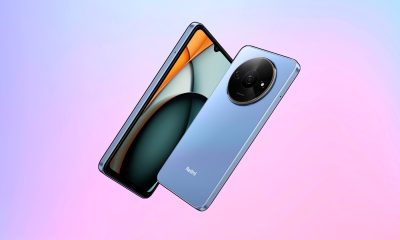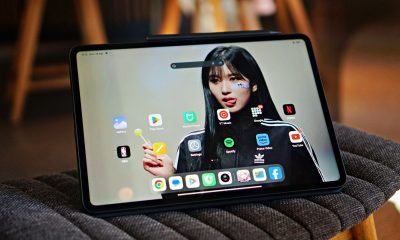India
WhatsApp is suing India’s government over rules that endanger privacy
It’s serious when WhatsApp starts talking about privacy…
It’s hard to imagine a Facebook-backed service talk about defending privacy. The company has a nasty reputation for handling users’ data, and it’s often considered a dystopian internet giant. But Facebook-owned WhatsApp is now suing the Indian government over new rules that endanger user privacy.
In February, the Indian government introduced new guidelines to regulate content on social media and streaming platforms. The new rules give greater power to monitor online activity, including encrypted apps like Signal and Telegram.
To be more precise, the government wants apps like WhatsApp to identify the originator of a message. The content of the message can remain encrypted, but the user should be traceable. The new rules supersede the existing law — the IT Act. Hence, it becomes impossible for the government to enforce traceability without a law.
And, even if the rule is modeled within the existing law, it’ll pose a massive challenge for encrypted apps. Giving up traceability potentially compromises all its users. WhatsApp says traceability of texts would force companies to collect and store billions of messages sent each day for the sole purpose of turning them over to law enforcement.
WhatsApp’s petition asks the High Court to declare that one of the new rules is a violation of privacy under the constitution of India since it requires social media sites to identify the “first originator of information” when asked for it.
The instant messaging app has over 400 million users in India. Platforms like Twitter, Facebook, and Whatsapp were given three months to comply with these rules. Although it’s suing the government, WhatsApp itself has received a lot of criticism due to its recently updated privacy policy.
“Some governments are seeking to force technology companies to find out who sent a particular message on private messaging services. This concept is called ‘traceability’,” said WhatsApp in an online statement. “WhatsApp is committed to doing all we can to protect the privacy of people’s personal messages, which is why we join others in opposing traceability.”


There’s no doubt that India is a major market for technology. While the country has its own brand preferences outside of the world’s usual, everyone still wants to get a piece of the market. To the dismay of global companies, the country is realizing the potential of its own market. Effective immediately, India has started restricting imports for new laptops, tablets, and PCs.
Recently, India made some headlines in the smartphone industry. A few companies, including Apple, have poured funds into building factories in India. Locally produced devices will allow these companies to attract the Indian market better. With the new regulations out today, it looks like these brands are going to enjoy a head start over others who aren’t in the country yet.
The Indian government introduced a new restriction (via Reuters) against the importation of “laptops, tablets, all-in-one personal computers, and ultra-small form factor computers and servers” made from other countries. Customers, however, will get an exemption. Airline passengers can still bring in these devices in their luggage. Additionally, a single imported device is allowable when bought through e-commerce platforms. Companies can import their products only by applying for a special license.
In a nutshell, bulk orders without a license are out. The government is instead encouraging users to buy locally produced products as part of its “Make in India” program. At the very least, it’s not a total ban on foreign brands. For example, Dell, HP, and Lenovo are exempt from the regulations since they already have production facilities built in the country.
SEE ALSO: Samsung overtakes Xiaomi as top phone brand in India

Attacking a huge smartphone market is difficult. With preferences constantly evolving, it can get tricky to figure out the best lineup to capture most of a market. Samsung, however, has just done it. In the last quarter of 2022, Samsung has taken the crown from Xiaomi as the bestselling smartphone brand in India.
India is an important market for most smartphone brands. It’s one of the largest markets in the world. However, despite its size, the biggest players are often those who offer more affordable devices for consumers. Budget is the name of the game if a brand wants to make it big in the country.
Things are changing, though. According to new market data (via Reuters), Samsung has nabbed the throne from the former leader, Xiaomi. In the last quarter of 2022, the Korean brand grabbed 20 percent of the market, while the latter only got 18 percent.
In a trend dubbed as premiumization, Indian consumers are reportedly enjoying more disposable income, resulting in more willingness to buy pricier products. Additionally, the report hints that consumers have started equating lower prices with inferior quality.
With the market trending towards more premium products, Samsung took the lead with a lineup that consists more of midrange to premium devices. It will also be interesting to see if Apple, an even more premium brand, can also make a dent in the Indian market.
SEE ALSO: Buyer’s Guide: Samsung Galaxy S23 Ultra

For one of the largest smartphone markets in the world, India is one of the rarer countries where Apple does not outright dominate. Undoubtedly, the company is trying to change that. Ongoing job listings in India are suggesting that Apple is ready to open its first brick-and-mortar store in the country.
First reported by Financial Times, Apple has posted job openings in India for several retail roles including for the iconic Genius Bar. Another clue even indicates that some spots have already been filled ahead of time. A few employees in the country have reportedly posted about their new jobs on LinkedIn.
Unfortunately, none of the job listings show how many stores are planned and where they will be. Narrowing things down by a bit, a few of the confirmed employees are from Mumbai and New Delhi. The report also does not indicate when the stores will open. However, since a few have already been hired, a grand opening might be coming soon.
Apple has a lot to gain by strengthening its foothold in India. The country is an important stronghold for smartphone companies. However, the company might find things harder as time goes by. The country recently dictated that brands must switch to USB-C if they want to sell their devices in India. All over the world, Apple remains the last stalwart against adopting the more universal standard.
-

 Reviews7 days ago
Reviews7 days agorealme 12 5G review: It was enchanting to meet you
-

 Buyer's Guide2 weeks ago
Buyer's Guide2 weeks ago2024 Samsung TV: Buyer’s Guide
-

 Reviews2 weeks ago
Reviews2 weeks agoJBL Soundgear Sense review: Make every run magical
-

 Reviews3 days ago
Reviews3 days agoOnePlus 12R review: Making sense of OnePlus’ latest flagship
-

 Smartphones2 weeks ago
Smartphones2 weeks agoHuawei Pura 70 series is live in China
-

 Reviews2 weeks ago
Reviews2 weeks agoChallengers review: A thrilling drama wrapped as a tennis anime
-

 News1 week ago
News1 week agoXiaomi Redmi A3 Philippine pricing, availability
-

 Smartphones2 days ago
Smartphones2 days agoHuawei Pura 70 Pro Unboxing and First Impressions





















